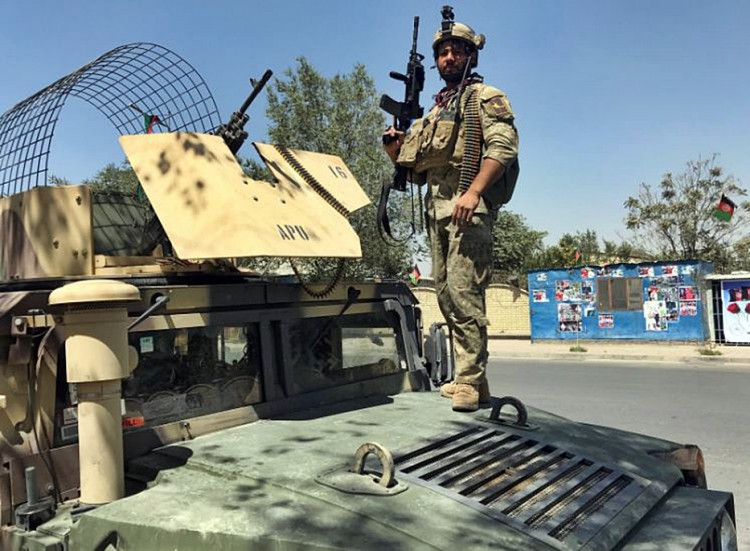The "death-by-drone" of the new commander of the Islamic State (IS) in Afghanistan after only one month on the job further confirms a gallows-humor observation that the only place a target can seek safety from an armed American aerial drone is by hiding underground -- permanently. Which is another way of saying, the target should commit suicide.
Abu Saad Erhabi was killed along with 10 other members of Islamic State Khorasan (ISIS-K). IS in Afghanistan is also known as the Islamic State Khorasan, which is the old name for the region that today includes Afghanistan.
At the time of his death the other day in American air strikes in eastern Nangarhar province, Erhabi is thought to have led about 2,000 fighters in Afghanistan He was also known as Abu Saad Orakzai.
The name Abu Saad Erhabi translates into "father of Saad the terrorist. Erhabi is the fourth leader of the IS to be killed in Afghanistan to be killed by American-led forces since April 2017. His death and that of the 10 other terrorists were confirmed by the National Directorate of Security in Kabul.
The emir of Daesh in Afghanistan and 10 others were killed in an air strike, said a statement from the directorate.
The air strikes on a village in the Khugyani district near the border with Pakistan also destroyed a large number of weapons, explosives, and ammunition, according to the directorate. Erhabi's death was confirmed by the provincial governor's spokesman.
The headquarters of the Resolute Support Mission that commands NATO and U.S. troops in Afghanistan said U.S. troops launched the air raid. Erhabi's death is a heavy blow to IS, which has lost four of its leaders in Afghanistan since the group emerged in early 2015. Erhabi's predecessor was Abu Sayed, who was killed in a U.S. drone attack in July.
ISIL has a relatively small presence in Afghanistan, mainly in Nangarhar, which is the cradle of the group's Afghan branch. It is currently fighting in the northern province of Jowzjan for control of opium smuggling routes into neighboring Turkmenistan.
Before the air raids, Erhabi's group claimed responsibility for a suicide attack that killed two persons outside an election commission office in Jalalabad. Erhabi's men also attacked several government installations in Kabul and bombed a school in a Shia area of Kabul that killed at least 37 people.






